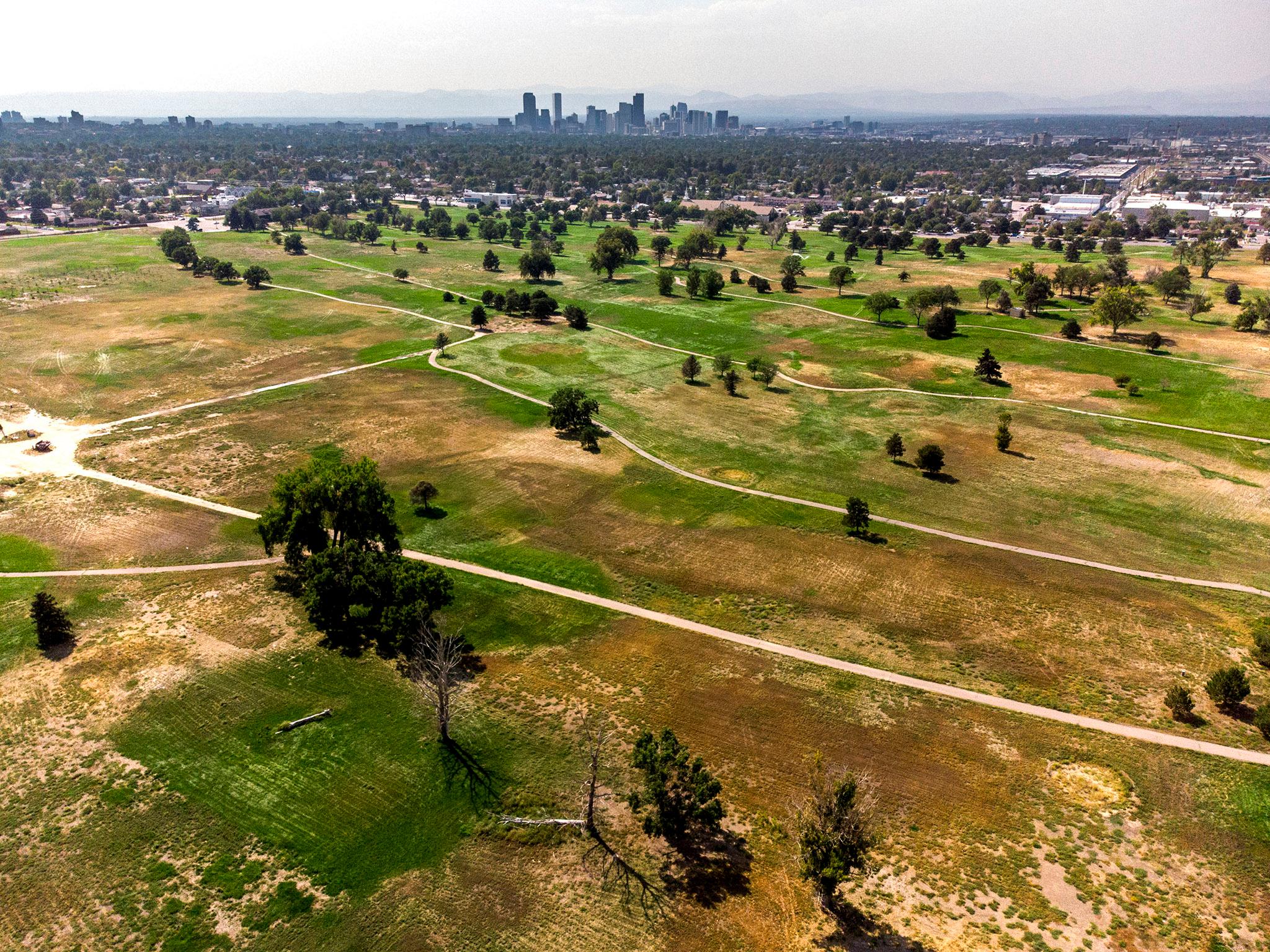Update, 6:45 p.m.: Nobody on City Council seconded Councilmember Candi CdeBaca's proposal to push back the vote on the rezoning of the Park Hill Golf Course, so it is being voted on Monday night.
Competing visions for northeast Denver's future will head to City Council Monday night.
Residents will voice their opinions on Westside Investment Partners proposed redevelopment of the 155-acre former Park Hill Golf Course into a massive mixed-use development with housing, retail and a regional park.
Here's what you need to know ahead of tonight's meeting.
Council members are scheduled to vote on several items related to the project.
Should Council refer a ballot initiative to voters that would lift a conservation easement that limits how the land can be used? This would make way for the development.
This question is necessary because opponents of the project ran a ballot measure, Initiative 301, that voters passed in 2021 requiring a vote of the people to lift any city-owned conservation easement. On Monday, Council could decide whether the people will vote on lifting the Park Hill Golf Course conservation easement in April.
Should the golf course land be rezoned? If rezoning passes, the city will expand the ways the land could be used under city code. Without rezoning, the people's vote would be all but irrelevant and development would possibly not occur. This is the item for which opponents of the project are trying to force a supermajority vote.
Should five new metropolitan districts be created to make way for the project? If Council says yes, the project would be able to secure the infrastructure needed to build a massive project on the site -- that is, if rezoning occurs and voters decide to lift the conservation easement.
Council will also decide whether to approve a development agreement with the current developer and future parties that own the land. This would establish who has construction and maintenance responsibilities, who funds what, requirements for how much affordable housing and park space is created, the 303 Heritage Artway Trail, who has property rights and how real estate transfers will work.
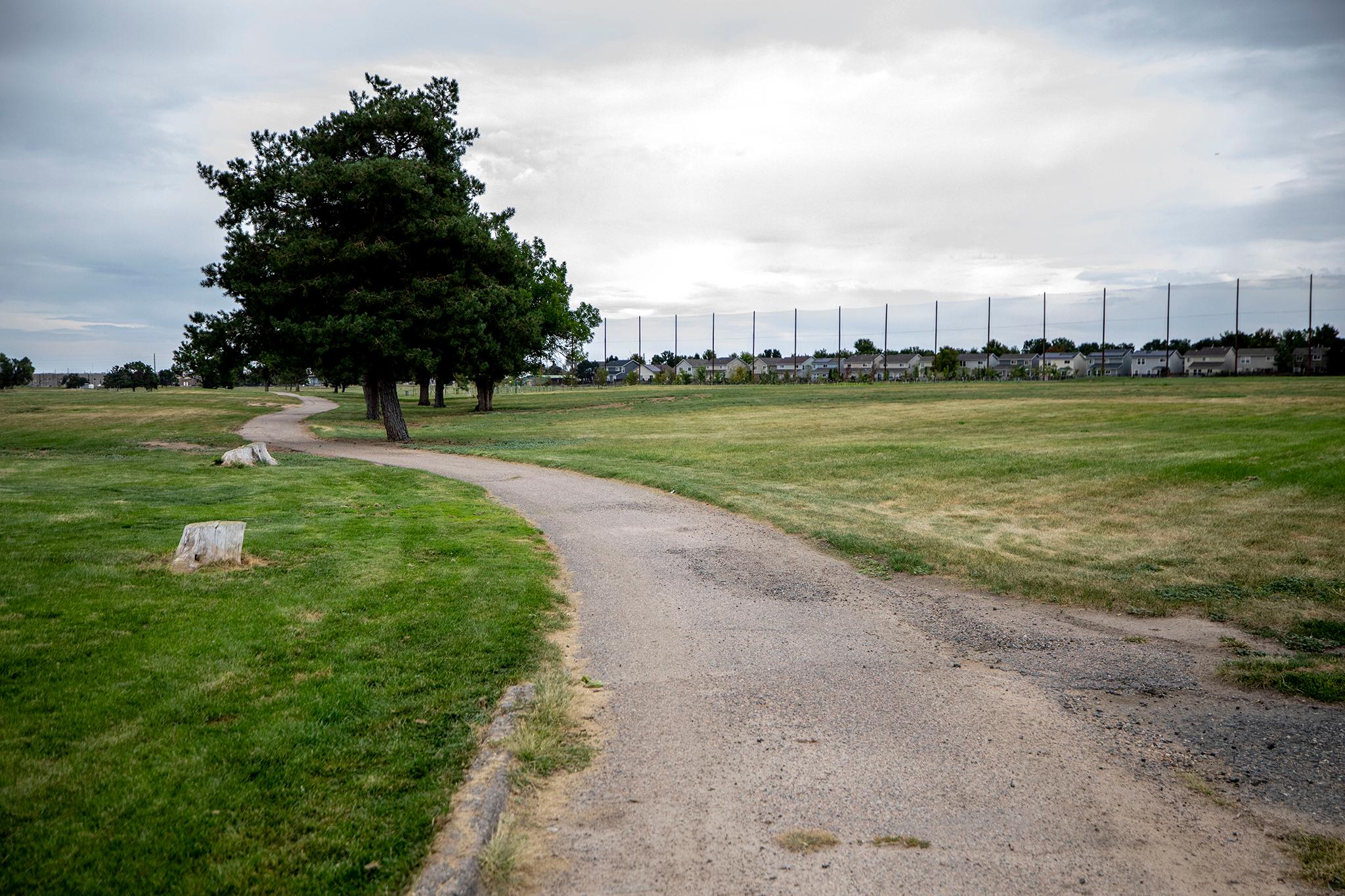
Some neighbors opposing the project have filed a petition to attempt to force a supermajority vote at City Council over the rezoning of the land.
For weeks, opponents of the development have been collecting signatures from property owners near the former golf course who oppose the rezoning.
While the rezoning would likely pass with a majority vote, getting nine of 13 Council Members to approve the rezoning is not a guaranteed win for the city and the developer trying to build on the property.
The opponents said they collected signatures from both residents and business owners within a 200-foot area around the golf course land. They turned in the petition and declared a win.
Opponents sent out a press release last week making the following claim: "Open space advocates force a super majority vote of City Council on the rezoning application for the Park Hill Golf Course land."
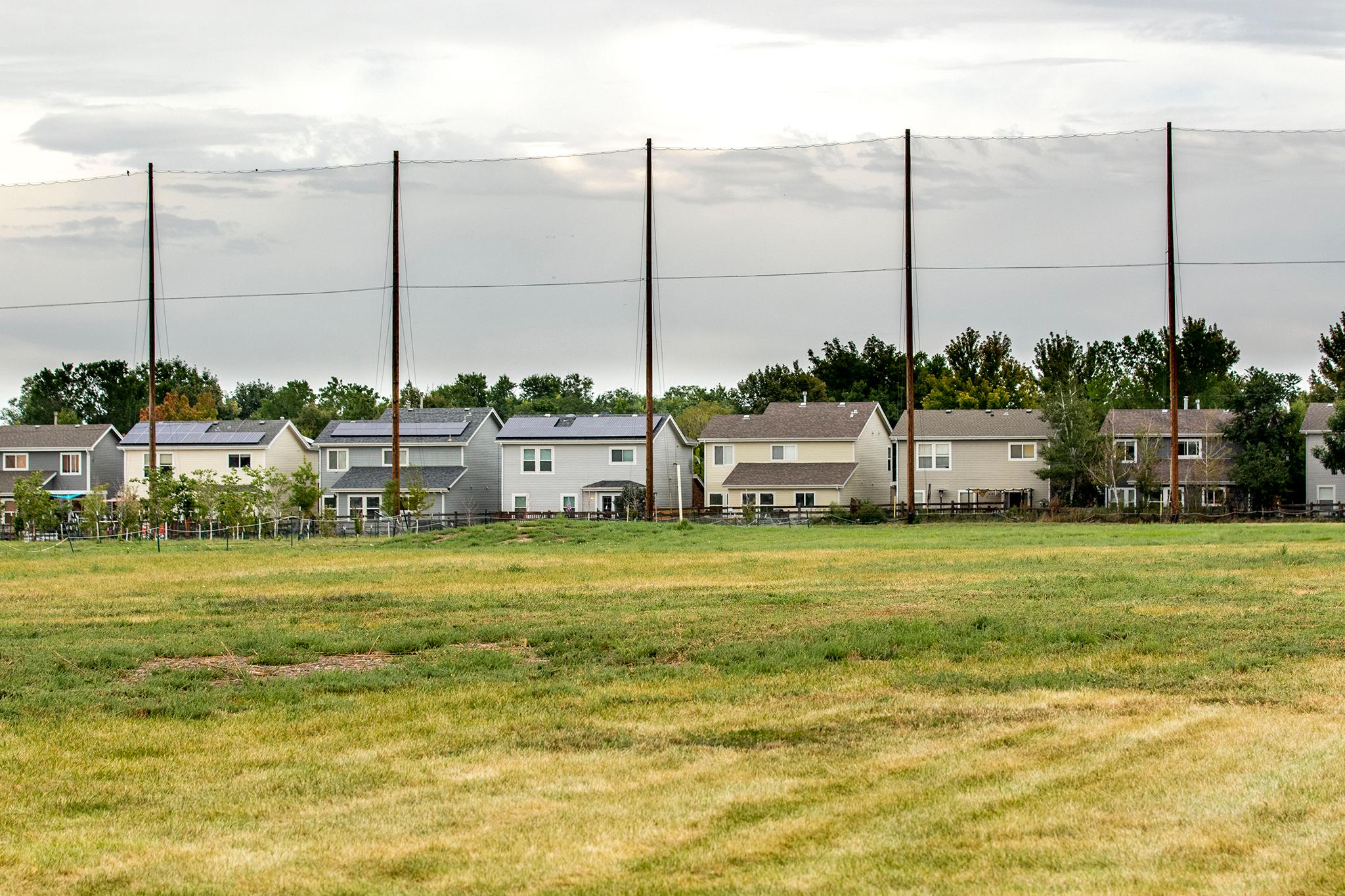
But the city decided the petition wasn't valid.
As the release was sent out, the city was still reviewing the petitions.
Both the City Attorney's office and Community Planning and Development, reviewed the signatures. They told City Council opponents had not met the bar required to trigger a supermajority vote.
"City staff were able to validate signatures representing 68 properties and making up 263,724 square feet of land," Community Planning and Development spokesperson Laura Swartz said in an email. "However, this is less than 20% of the land area within 200 feet of the proposed rezoning, which would have been 521,221 square feet."
Some of the signatures themselves didn't pass muster, according to Community Planning and Development.
"Four properties received partial credit because only one property owner signed the petition, and 22 properties had invalid signatures," Swartz added. "The partial credit was given in line with the instructions from the Protest Petition Guide on page 6, under the heading "What if there are multiple property owners?" The invalid signatures were mostly individuals signing on behalf of organizations. The city attorney's office reviewed documents submitted on behalf of organizations and determined whether they met the threshold to be considered valid under state law."
Property owner Ashley Murphy was frustrated that the city decided the petition was not valid based on rules that she said had not been explained to the opponents.
"The city has now informed us that these signatures are invalid according to rules that were never mentioned or written as we prepared for this process," Murphy wrote.
She hoped the decision would be appealed.
Swartz noted there is no process for appealing or curing signatures for the petition.
"The deadline to submit valid signatures was Tuesday, Jan. 17th at noon (which was extended a day due to the city holiday on the 16th), so there is no further time at this point to collect additional signatures or documents," she wrote. "Regardless of outcome, this would not have had an impact on the public hearing timeline, which is scheduled for Monday, Jan. 23."
Yet an appeal has occurred.
Doby sent an email to Community Planning and Development appealing the city's rejection of the petition.
"We have met or exceeded all requirements for our protest petitions and we hereby demand that City Council and CPD accept them as sufficient for the purpose of requiring a super majority City Council vote," he wrote.
Councilmember Candi CdeBaca agrees and plans to try pushing back the rezoning vote at tonight's meeting.
She said she feels it's premature for City Council to vote on rezoning before the appeal is decided.
"I'd like to postpone the Park Hill Golf Course rezoning and ballot question until after the protest petition appeal is resolved," she wrote Denverite. "I doubt I will get support, but I think it's important to get it on record that it's not okay for us to be voting and sending something to the ballot that is actively in an appeal process.
The developer and the city hope Council puts a ballot measure allowing the Park Hill Golf Course redevelopment on the ballot in April. The clock is ticking for that to happen.
City Council has until Feb. 3 to send the question of dissolving the land easement in question to voters for the April 4 election.
If opponents successfully stall the project, which has been supported by Mayor Michael Hancock's administration, it could easily be opposed by a future administration. Hancock terms out in July, and a new administration might not share his vision for the golf course.
The Hancock administration, through the city's planning department, has been pushing the project.
The city-led planning and rezoning process started shortly after Westside bought the land for $24 million from the George W. Clayton Trust in 2019.
Hancock's campaigns received significant political contributions from Westside, related LLCs and the company's leaders. Westside has a contract with Denver's heavyweight lobbyist firm CRL Associates -- a significant Hancock backer.
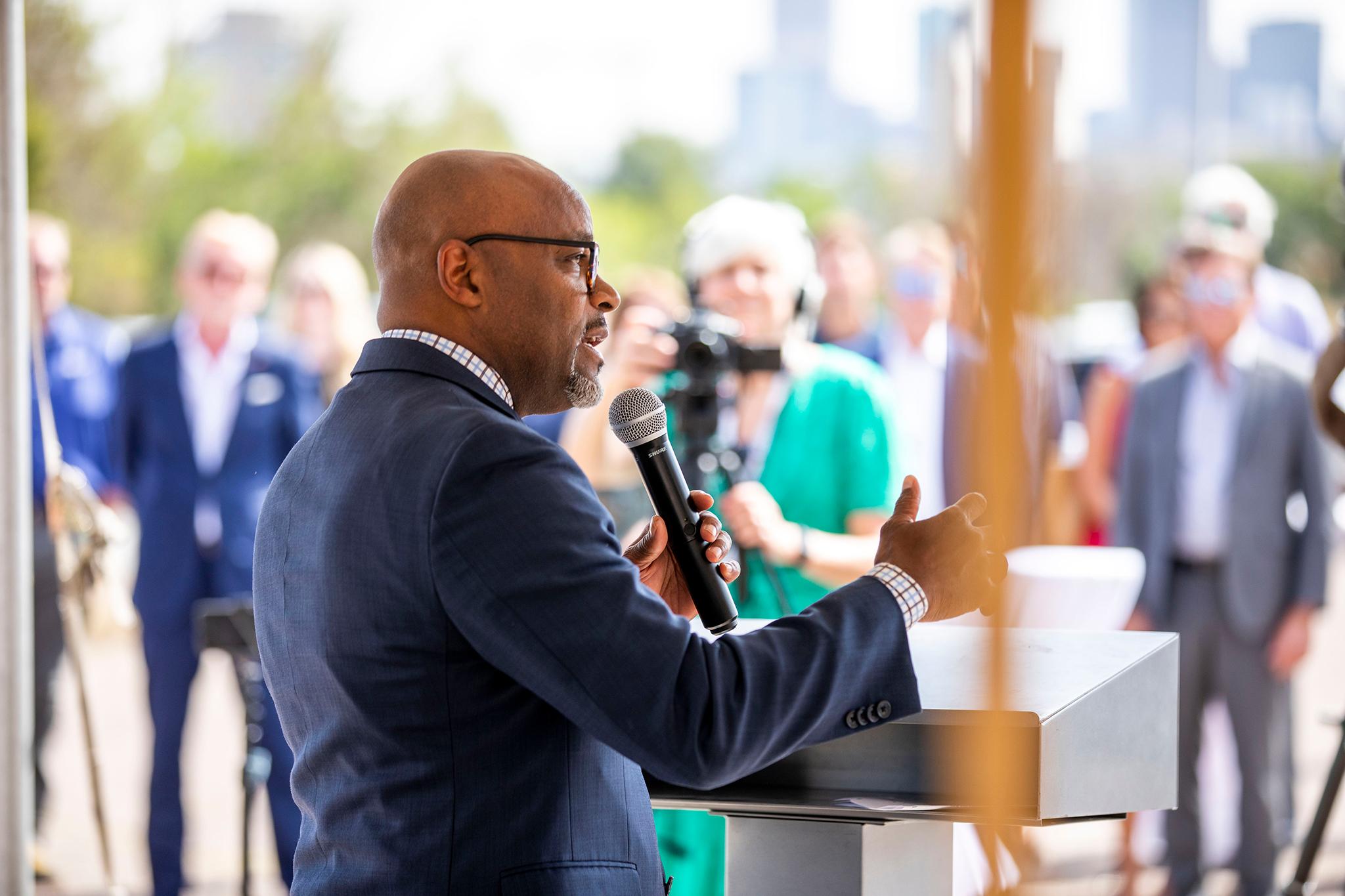
City Councilmember Chris Herndon has ushered the Westside project through Council. Thus far, the redevelopment has received support from a majority of City Council members.
Most supporting councilmembers have received donations from either Westside, its LLCs or its higher-ups over the past five years.
The company and its entities and staff have made over $41,000 in political contributions to Denver City Council members and the mayor since 2017.
Since 2015, the following district councilmembers have reported receiving donations from Westside, its leadership or associated LLCs: Chris Herndon, Kevin Flynn, Stacie Gilmore, Amanda Sandoval, Amanda Sawyer, Kendra Black and Jolon Clark.
Both at-large councilmembers, Robin Kniech and mayoral candidate Debbie Ortega, have reported receiving money from the developer as well.
Park Hill Golf Course naysayers CdeBaca, who often finds herself at odds with fellow council members, and Paul Kashmann, along with City Council President Jamie Torres who has largely voted for items related to the project, are not recipients of any donations from Westside, its leaders or related entities, according to the campaign finance reports Denverite reviewed.
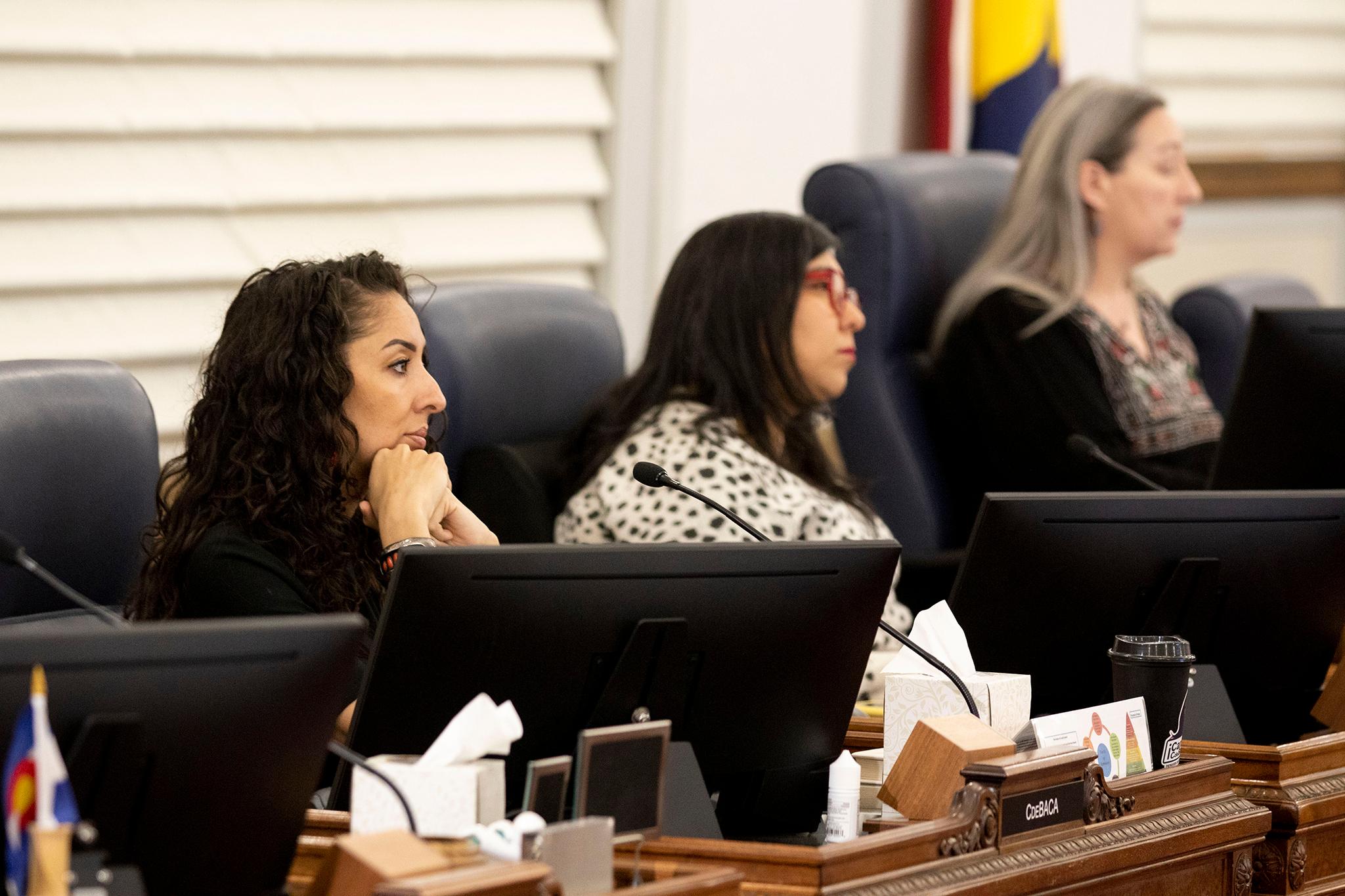
Many of the candidates Westside contributed to received donations before the company purchased the golf course in 2019.
Westside declined to comment on this story.
Ever since Westside invested in the land, Denverites have clashed over how this space should be used.
Only a handful of diehard golfers, who aren't waging a fight at all, want to see it remain an 18-hole, regulation-length fee-based course. That's the required use spelled out multiple times in a conservation easement the city paid for back in former Mayor Wellington Webb's administration.
Webb was initially an outspoken opponent of the development but has recently declined to comment to Denverite on the issue.
Proponents of the project want voters to allow the city to extinguish the conservation easement. Here's how: The people would have to allow the city to lift the easement through a vote.
Then the City of Denver would temporarily buy the land from Westside, lift the easement, and sell the 155 acres back to the company to develop the property.
The City Attorney's office, which is under the mayor, informed this strategy.
Some opponents of the development want the conservation easement amended to strike the golf-course requirement. Others hope the city buys the land, lifts the easement and creates a regional park on the entire site.
Under Westside's ownership and the Hancock administration, there is no clear path for the golf course to become a park, unless one of those two parties has a change of heart.
Here's what opponents say.
The project's opponents argue the proposed development will gobble up land that could be used as an even larger regional park than the developer has proposed.
While Westside has characterized the opponents of the development as anti-housing, these advocates say that isn't true. Rather, the city should not sacrifice open space when there are plenty of undeveloped parts of town that aren't green that could become housing.
Some opponents of the development look to the nearby RiNo Art District, a former industrial area that has been converted into a hip, dense neighborhood, and suggest the same could be created in the industrial part of Northeast Park Hill without touching the 155-acre former golf course.
The development, opponents argue, violates a conservation easement that prevents development on the site, and the purpose of that easement, they argue, is to protect open space -- not golf.
The space could instead be used to boost the city's tree canopy, making the air more breathable. The project will increase property values in a neighborhood that has already experienced gentrification and development. And why build here when there are industrial areas nearby?
Here's what proponents say.
Northeast Park Hill is a food desert, and champions of the project say it will address the neighborhood's need for fresh food.
The development will also include a sizable regional park with recreation amenities like sports fields and community centers nearby neighborhoods lack and crave. The developer has offered to fund the park.
Westside contends the project would actually increase the current tree canopy and would be the kind of live-work-play community near a future rapid transit line and a train stop that would be environmentally friendlier than a water-sucking golf course.
The project will bring much-needed housing to the city. And it will include more income-restricted housing than the city requires under its current Expanding Housing Affordability rules that City Council passed in June.
To oppose the development is to oppose housing, proponents argue. In a city that is tens of thousands of units behind what is needed, that is unconscionable, they say, arguing, density actually combats gentrification and displacement.
The project is an example of sustainable urbanism and hopefully, a model that can be replicated nationally, Westside argues.
On Monday, all sides will have a voice at a City Council meeting sure to drag into the night.
Ben Markus and Kevin J. Beaty contributed reporting to this story.

